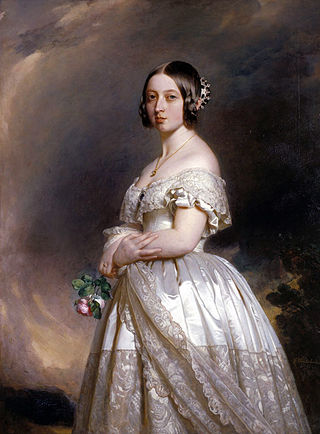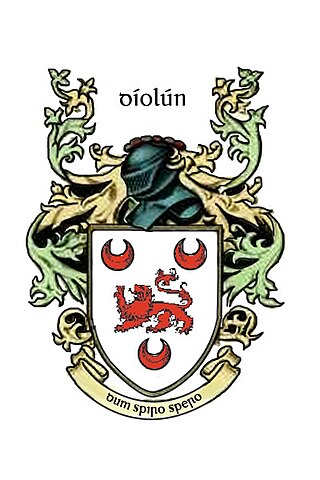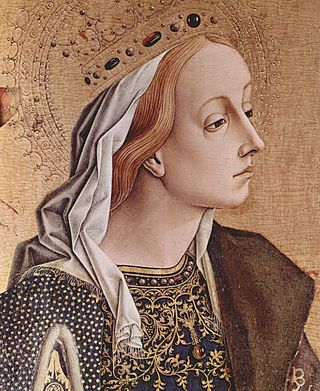Kate Walsh or Katie Walsh may refer to:
Brennan is an Irish surname which is an Anglicised form of two different Irish-language surnames: Ó Braonáin and Ó Branáin. Historically, one source of the surname was the prominent clan Ua Braonáin (O'Brennan) of Uí Duach (Idough) in Osraige who were a junior Dál Birn sept stemming from a younger son of Cerball mac Dúnlainge (d.888). Recent surname evaluations highlighted the geographic consistency of this lineage in the barony of Idough. However, based on the ultimate authority of Dubhaltach Mac Fhirbhisigh they are out of Ui Dhuinn (O’Dunn) and, therefore, an Uí Failghi tribe, not Osraige. While it is clearly apparent that O’Hart's pedigree is erroneous, it is suggested that Ó Cléirigh probably became confused while transcribing from Mac Fhirbhisigh. This is echoed by the modern scholar, Bart Jaski.

Ciarán or Ciaran is a traditionally male given name of Irish origin. It means "little dark one" or "little dark-haired one", produced by appending a diminutive suffix to ciar. It is the masculine version of the name Ciara.
Katie is an English female name. It is a form of Katherine, Kate, Caitlin, Kathleen, Katey and their related forms. It is frequently used on its own.

Victoria is a feminine first name. It is also used as a family name.
Jamie is a unisex name. Traditionally a masculine name, it can be diminutive form of James or, more rarely, other names and is of Scottish Gaelic origin. It is also given as a name in its own right. Since the late 20th century it has been used as an occasional feminine name particularly in the United States.
Dunn is a surname of English and Scottish origins. It has several different origins. Typically the origin of the surname Dunn is from the Middle English dunn, meaning "dark-coloured"; this name originated as a nickname for one with dark hair. Another origin is from a habitative name, derived from Dun in Angus, Scotland; this place name is derived from the Scottish Gaelic dùn, meaning "fort". Another origin is from the Gaelic donn, meaning "brown".
Cole is a surname of English origin, and is also now used as a given name. It is of Middle English origin, and its meaning is "swarthy, coal-black, charcoal".
Gaynor is both a surname and a given name. Notable people with the name include:
Murtagh is an Irish surname. Notable people with the surname include:

Dillon is an Irish surname of Breton origin, descending from a cadet branch of Viscomte de Leon in Northern Brittany. It first appeared in Ireland with the arrival of Sir Henry de Leon, in the service of Prince John in 1185. Sir Henry married Maud de Courcy, daughter of Sir John de Courcy and Affrica Guðrøðardóttir. Awarded large tracts of land by in Meath and Westmeath, one of the Dillons’ first Mott & Baileys can still be found at Dunnamona before the establishment of stone structures such as Portlick Castle.
Power is a surname.

Kate is a feminine given name, and a short form of the names Katherine, Caitlin and others.
Katrina or Katrine is a feminine given name. It is a derivative of Katherine. People with this name include:
The surname Burns has several origins. In some cases, it derived from the Middle English or Scots burn, and originated as a topographic name for an individual who lived by a stream. In other cases the surname is a variant form of the surname Burnhouse, which originated as a habitational name, derived from a place name made up of the word elements burn and house. In other cases the surname Burns originated as a nickname meaning "burn house". In other cases, the surname Burns is an Anglicised form of the Irish Ó Broin, which means "descendant of Bran". In some cases the surname Burns is an Americanized form of the Jewish surname Bernstein, which is derived from the German bernstein ("amber").
Walsh is a common Irish surname, meaning "Briton" or "foreigner", taken to Ireland by soldiers from Britain, namely Welsh, Cambro-Norman, Cornish and Cumbrian soldiers during and after the Norman invasion of Ireland. It is the fourth most common surname in Ireland, and the 265th most common in the United States. There are variants including "Walshe", “Welch”, "Welsh", and "Brannagh". Walsh is uncommon as a given name. The name is often pronounced "Welsh" in the south and west of the country. In Great Britain, Guppy encountered the name only in Lancashire. It is the surname of the Barons Ormathwaite.
Heffernan is an Irish surname derived from the Gaelic Ó hIfearnáin, which comes from the byname Ifearnán literally meaning 'little demon' or more metaphorically 'daredevil'. Heffernan gives rise to alternatives such as Heffernon and Hefferan. The name sometimes contains the O' prefix.
Kathleen is a female given name, used in English- and Irish-language communities. Sometimes spelled Cathleen, it is an Anglicized form of Caitlín, the Irish form of Cateline, which was the Old French form of Catherine. It ultimately derives from the Greek name Aikaterine, the meaning of which is highly debated. Kathleen was the 8th most popular girls' name in Ireland in 1911, but by 1965 it had sunk to number 18.
Kate Price may refer to:
Katharine, Catherine or Kate Johnson may refer to:

Deirdre or Déirdre is a feminine given name of Celtic origin and of unknown meaning. Deirdre is the name of a tragic heroine of Irish mythology. More attention was drawn to the name during the early 20th Century in Ireland and throughout the Anglosphere after W. B. Yeats published his poem Deirdre in 1907 and playwright J.M. Synge published his play Deirdre of the Sorrows in 1910. There are a number of spelling variants and pronunciations of the name in use.